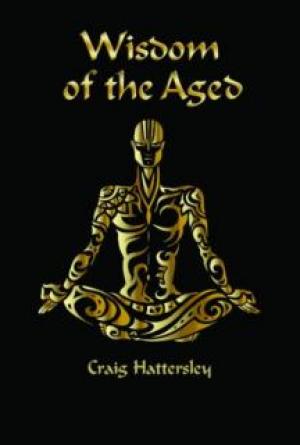FOOTNOTES
1. Sergyeï Vasilgevitch Vereshchágin. Still another brother, Alexander Vasilgevitch Vereshchágin, was wounded in the same campaign, and gives vivid pictures of the horrors of the march in his volume, “At Home and in War.”
2. Session of June 10, 1893.—B. S.
3. In the course of this speech Gladstone made the statement, “Militarism is indeed a most terrible curse for civilization.”—B. S.
4. The justified hope of the proposer was that a definitive peace (definitivum) would develop from this provisional one (provisorium.)
5. Even to-day reason is not yet heeded, because the all-powerful megaphone of the political press is closed to it.—B. S.
6. “What would you have us do? We are the weak, the vanquished; but as soon as there are propositions of disarmament coming from the victors we are ready to enter into negotiations.”
7. At the present time one would say “in combating social misery, in ennobling and elevating the masses, in ethicalizing all classes” (Ethisierung aller Stände).—B. S.
8. Yet how singeing hot these rays are still burning in the Transvaal and in Manchuria! (Observation of 1908.)—B. S.
9. This is the case even to-day (1908).—B. S.
10. The first series of massacres extended from October 3, 1895, to January 1, 1896. On the part of the Armenians, as is shown by documentary evidence, there was no provocation whatever. In spite of that, 85,000 people were killed, about 2300 cities and villages were laid waste, more than 100,000 Christians were compulsorily converted to Islam, and 500,000 were reduced to starvation.—B. S.
11. Der Geiger, or rather Der Geigenmacher, von Cremona, a one-act opera by Hans Trneček, born May 16, 1858, at Prague. Text by Leopold Günther, after Coppée. First produced at the Court Theater of Schwerin, April 16, 1886.—TRANSLATOR.
12. In 1904 Mr. Nepluief called upon me in Vienna. He had remained faithful to himself and his apostleship. He had also succeeded in interesting the Czarina in it. It was his desire that the peace societies everywhere should establish such fraternities among the common people; but, to say nothing of other objections, these societies, above all, lack the means for doing so.
13. Our old friend the literary Hotspur, so full of mettle, from Munich, recently elected to the Reichstag.
14. Erkel Ferenz (1810–1893), creator of the national Hungarian opera. Bank-Ban is regarded as his best work.—Translator.
15. As a contrast to this idea (Hebt den Grund der Armut auf!), which is not current among philanthropic financiers, I append the following letter:
My dear Baroness:
I have had the pleasure of receiving your esteemed favor of the nineteenth. Highly as I esteem the work to which you are devoting yourself with such self-sacrificing assiduity, I regret that I cannot be of assistance to it by acceding to the wish that you express. The great number of demands made upon me in behalf of humanitarian objects forbid my considering them all. You will, therefore, my dear Baroness, understand and will not feel offended with me, if I give the preference to such associations as not merely have in view an ideal purpose but pursue practical ends connected with real life.
Regretting that I am not in a position to give you an affirmative answer, I beg you to accept the expression of my distinguished consideration.
Bn. N. Rothschild
16. Secret guaranty with Russia.
17. Also, as I have learned from other sources, by the King himself.—B. S.
18. I observe that the division of the prize corresponds neither to the letter of the will nor to the testator’s intentions, which I knew well.
19. The union, Entente cordiale, for the bettering of Franco-English relations, due to the initiative of Representative Thomson and the Honorable Philip Stanhope, under the chairmanship of Lord Dufferin.—B. S.
20. Prisoners charged with being anarchists were tortured in the fortress of Montjuich. A letter, dated March 11, and signed Sebastian Sunjé, addressed to “all good men of the earth,” came to light: “Oh, by all that is sacred to you, rescue us from the hands of our torturers.” But alas! the “good men of the earth” are not organized, are not ready to be mobilized. They can only shudder.
21. Schach der Qual. I had cherished the wish to bring to the Tsar’s attention the chapter entitled Frohbotschaft (“Good Tidings”) containing the invitation to a conference of the powers.—B. S.
22. Psalm cxlix, 6–8.—Translator.
23. Die Waffen nieder, VII, 344.
24. Die Waffen nieder, VII, 377.
25. Post hoc is not propter hoc. Although it delighted me to hear that the Tsar had read my book shortly before the appearance of the manifesto, yet I was firmly convinced that a long chain of many influences, among which that of reading a novel could have been of only small effect, must have preceded such an action. Later I learned that Bloch’s book had made a deep impression on the Tsar; at that time I suspected that Professor Martens had helped inspire the document and wrote him to that effect. His answer follows:
Villa Waldeuse near Wolmar
Livonia, September 9, 1898
My dear Madam:
I make haste to present my sincerest thanks for the friendly letter of the 4th inst. with which you honored me. I do not know to what degree my teaching could have influenced his Majesty the Emperor or his councilors in the noble task which they have imposed on the governments and nations of the civilized world.
I had no direct part in the celebrated rescript of August 12 (24), having been for some time in residence on my estate in Livonia, far from the capital. But I have applauded with the keenest sympathy and the sincerest admiration the generous action taken by my august master for the well-being and happiness of all civilized nations.
As to the bibliographical notes, I shall make it my duty to communicate them to you after the meeting of the conférence de la paix. At this moment I am too busy with my official duties.
Reiterating my very respectful thanks, I beg you, Madam, to accept the assurance of my high consideration.
Martens.
26. A treaty without any limitations. (Observation of 1908.—B. S.)
27. It is a fact that a few days later the question at issue was submitted to the arbitration of the Queen of England. Later the two republics concluded a standing agreement to bring every future controversy before the Hague Tribunal, and as a result reduced their armaments and sold their war ships. As a memorial to this agreement a gigantic statue of the Christ has been erected on a peak of the mountain boundary, the Andes. (Observation of 1908.—B. S.)
28. It was not his first letter to me. A few months before, young Egidy surprised and delighted me with the following communication from a distant part of the world:
On his Majesty’s ship Seeadler
Tullear, Madagascar, April 20, 1898
My dear Baroness:
As the first German naval officer who, since the war of 1870, has left a war ship to step on soil now French, I am taking the liberty of sending you this respectful greeting.
No great political action has brought us hither, but the fact that German ships of war are again calling at French harbors is symptomatic, and will certainly be welcomed by you with satisfaction; therefore I could not deny myself the pleasure of giving you this bit of information.
I am glad, gracious lady, to take this opportunity to express to you a son’s gratitude for the true comradeship which you have given my father; I know how precious it has been to him and how thankfully he has accepted it.
With the request that you present my sincerest regards to your husband, I am
Yours most respectfully and faithfully
Moritz von Egidy, Lieutenant at Sea
29. The passage from my eulogy here referred to ran thus:
The consciousness that an Egidy was here was such a comforting, strengthening, joyous consciousness. We had him; this possession was like the possession of a check book. If ever assistance, consolation, support were required in a spiritual campaign, in an ethical dilemma, all one had to do was to produce the check book; Egidy was certain to honor it instantly. Always the right word, the unhesitating opinion, nobility pure of dross. Even if there were heard on all sides: “The world is bad, every one thinks only of himself, there is no improvement, there are no clear notions of duty, no straight paths of virtue,” we could always smile calmly and say to ourselves, “That is not true; there is an Egidy here.”
30. Die Haager Friedenskonferenz, Tagebuchblätter, Dresden und Leipzig, E. Pierson. 2d edition, 1901. Price 2 marks.
31. This might be translated, “You have furnished us straw for our bricks.”—TRANSLATOR.
32. My niece Maria Louise was with us at The Hague.
33. He refers to the letter, the composition of which, as decreed by the Interparliamentary Conference of 1894, was intrusted to Chevalier Descamps and H. La Fontaine, and which, at the direction of the Interparliamentary Congress of 1895, was sent to all the governments in the name of the Union.
34. Nothing of the later limitations of “vital interests” and “honor of the nations.” (Observation of 1908.)
35. The delegates for the United States of America were Andrew D. White, United States ambassador at Berlin; Seth Low, president of Columbia University; Stanford Newell, envoy extraordinary and minister plenipotentiary at The Hague; Captain Alfred T. Mahan, United States Navy; William Crozier, captain of artillery; Frederick W. Holls, lawyer, of New York, secretary to the delegation. Mr. Holls died in 1903.—TRANSLATOR.
36. The Russian delegates were Von Staal, ambassador at London; Martens, of the Ministry of Foreign Affairs; Vasily, also of the Foreign Department; and five technical delegates.—TRANSLATOR.
37. Professor Zorn of the Law Faculty in the University of Bonn, scientific delegate to the Peace Congress.—TRANSLATOR.
38. Persia was represented at the First Peace Conference at The Hague by Aide-de-camp General Mirza Rhiza Khan (Arfa-ud-Dovleh), ambassador at St. Petersburg and Stockholm, and Mirza Samad Khan (Montazis-Sultanah), counselor of legation.—TRANSLATOR.
39. For an account of the outcome of this critical situation see Andrew D. White’s “Autobiography.”
40. Baron von Bildt, ambassador from Sweden and Norway to the court of Italy. He was the only delegate plenipotentiary from Scandinavia; but Sweden and Norway each sent two technical delegates.—TRANSLATOR.
41. These were M. Georges Bihourd, ambassador at The Hague, Baron d’Estournelles de Constant, and three technical delegates—General Mounier, Rear Admiral Péphau, and Professor Louis Renault of the Law Faculty and legal adviser to the Ministry of Foreign Affairs.—TRANSLATOR.
42. Sir John A. Fisher, Vice Admiral, technical delegate from Great Britain.—TRANSLATOR.
43. Dr. Voïslaf Velkovitch, professor of law in the University of Belgrade; the other representatives of Servia were Miyatovitch, envoy at London and The Hague, and Colonel Maschin, envoy at Cetinje.—TRANSLATOR.
44. There are a hundred cents to a dollar and a hundred years to a century. Ninety-nine cents do not make a dollar; nor does the year 1899 end the century.—TRANSLATOR.
45. Brennus, leader of the Senonian Gauls, who took Rome in 390 B.C. Being offered a thousand pounds of gold as a ransom for the Capitol, he took it and went home.—TRANSLATOR.
46. A reference to Jules Verne’s Captain Nemo, who always helps Captain Grant’s children at the right moment, and whom we had jestingly chosen for our guardian saint.
47. Richard Chimani, physician to the General Staff, a friend of long standing who owned a place near us.
48. Authorized German translation, under the title Seemannslaufbahn, by A. H. Fried. Berlin, Boll & Pickardt.
49. See pp. 405 ff.







